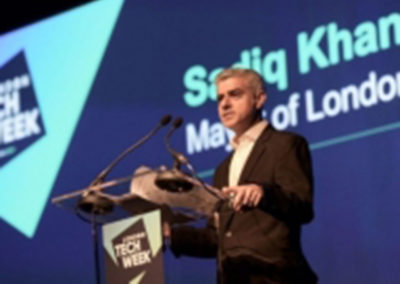News & Events
In line with its industrial strategy, the Government is poised to invest £246m on battery technology – funding research and development breakthroughs – according to the Telegraph – with Greg Clarke, the business secretary, set to emphasise the importance of “cutting -edge energy plans”, including battery power and electric, driverless vehicles.
Academic and industry experts also agree that effective electrical energy storage will play a crucial role in moving to a world powered by low-carbon electricity.
Read more on some of the work at Imperial that could help you…
Automated, electric driving – a dream team to save the planet? by Dr Gregory J. Offer whose research is based around fuel cell, battery and supercapacitor technology, and their application, mostly in transport.
The video below illustrates work by researchers @ImperialMechEng – read more on their paper.
Share post:
Latest news, insights and events

Imperial’s experts to help clean-tech startups
Mayor of London Sadiq Khan announced the launch of Better Futures - an incubator focused on clean-tech startups to be led by Sustainable Bridges and delivered by the GLA, Imperial College London, Imperial Consultants and OPDC (Old Oak and Park Royal Development Corporation). read more

Heathrow’s air quality initiative takes off
As Heathrow gears up for a third runway, the airport is taking steps to improve London's air quality. Imperial's Professor Helen ApSimo has been invited to chair a new Heathrow Air Quality Expert Review Group - while as many as 6,000 staff working at Heathrow will be incentivised to acquire low-emission cars. read more

Professor Simon Taylor-Robinson appears in primetime BBC One health programme
“Long Live Britain”, which was broadcast on Monday 5th August 2013 at 9pm on BBC One, documented a record-breaking health screening aimed at challenging the way that we tackle three of Britain’s most dominant preventable diseases. read more